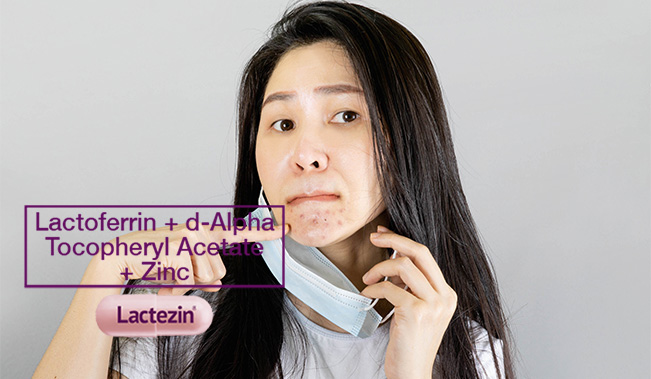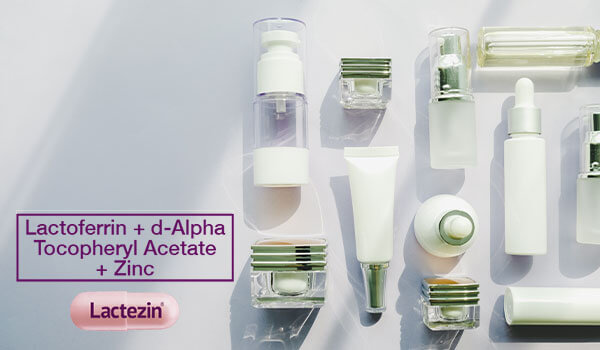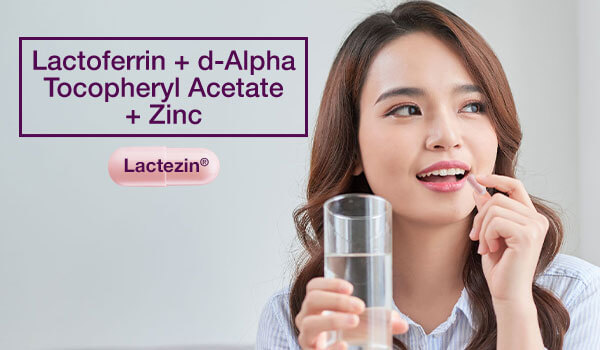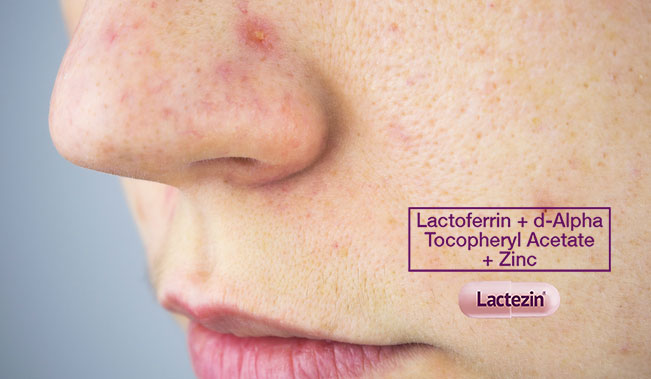How Free Radicals Cause Acne

Spotted pimples on your face even if you’ve been diligently cleansing it, sticking to a skincare routine, eating healthy food, and practicing good lifestyle habits? Well, you may want to look into your surroundings. There are some environmental factors that can greatly affect your skin and trigger the formation of pimples.
One of these would be free radicals that can be produced either by the body due to internal factors like inflammation or aging, or external factors like cigarette smoke and exposure to pollution.
While free radicals may help your body ward off infections that can make you ill, too much of them can be harmful. After all, free radicals are unstable molecules and have to constantly be stabilized by substances called antioxidants. If there aren’t enough antioxidants in the body but too much free radicals, this can cause significant damage to many of your body’s cells.
While free radicals are known to affect your body as a whole, their negative effects can really show up on your skin, causing pimples and other skin-related problems. Discover how free radicals lead to breakouts and how you can remedy these.
How Do Free Radicals Cause Pimples in the Body?
As the largest organ in your body, your skin may be constantly exposed to oxidative stress caused by free radicals. Unfortunately, there are many ways that free radicals can attack the skin and make it vulnerable for certain problems like pimples:
- Via entry of harmful pollutants: The mere entry of pollutants like smog, cigarette smoke, radiation, and chemicals found in cleaning materials into the body, as highlighted by authors of a 2016 study, can produce free radicals that may play a role in the formation of pimples.
- Through attacks on lipids and inflammation: Free radicals can attack compounds called lipids that are vital in cell function, hormone regulation, and energy storage. This attack may cause inflammation in the area underneath your skin. Inflammation, together with other factors like dead skin cells, oil, and bacteria, may set the stage for the appearance of very red, swollen, or even painful pimples.
- Increased sebum (oil) production: When this happens, there’s a high possibility that even more free radicals are generated and lead to more oxidative stress within the skin. As you may know, increased sebum concentrations, combined with dead skin cells, bacteria, and dirt, can lead to the formation of pimples.
Combat the Effects of Free Radicals Today
If you’re frustrated at the sight of pimples on your skin, address it from within! Start by eating anti-inflammatory food that can counter free radicals, such as broccoli, leafy green vegetables, oranges, and bell peppers. Feel free to exercise too! Not only will physical activity potentially help improve your skin, but also help your body protect itself against oxidative damage. Just avoid overdoing it, since exercise to the point of exhaustion may produce more free radicals.
Besides this, you can also ask your doctor about supplements like Lactoferrin + d-Alpha Tocopheryl Acetate + Zinc (Lactezin). Together with proper diet and exercise, Lactoferrin + d-Alpha Tocopheryl Acetate + Zinc (Lactezin) may aid in boosting your skin health and lessen the harmful effects of free radicals on your skin. This supplement has three powerful ingredients:
- Vitamin E: This vitamin acts as an antioxidant that may help combat free radical damage and UV radiation that may potentially cause inflammation, assist in maintaining good skin moisture and health, and aid in reducing risk for skin dryness.
- Lactoferrin: This iron-binding protein helps provide anti-inflammatory and antibacterial properties. As a result, this ingredient may help lessen inflammation and sebum in the skin, assist with damaged skin cell repair, and aid in boosting your body’s defenses and in combating bacteria.
- Zinc: This may help strengthen your immune system so it can combat free radicals better. Aside from that, zinc may help repair damaged tissues, promote wound healing and deliver antioxidant and oil-regulating properties so your skin may look better.
For visible results, take Lactoferrin + d-Alpha Tocopheryl Acetate + Zinc (Lactezin) twice a day for two weeks (one in the morning and one at night). Lactoferrin + d-Alpha Tocopheryl Acetate + Zinc (Lactezin is available in all leading drugstores nationwide and on online platforms like the ULSSI webstore, Lazada, and Shopee.
If symptoms persist, consult your doctor.
SOURCES:
https://www.ncbi.nlm.nih.gov/pmc/articles/PMC3614697/
https://www.ncbi.nlm.nih.gov/pmc/articles/PMC3249911/
https://www.ncbi.nlm.nih.gov/pmc/articles/PMC4756869/
https://www.ncbi.nlm.nih.gov/pmc/articles/PMC4756869/
https://www.ncbi.nlm.nih.gov/pmc/articles/PMC5908316/
https://pubmed.ncbi.nlm.nih.gov/10849897/
https://pubmed.ncbi.nlm.nih.gov/11327321/
https://www.hsph.harvard.edu/nutritionsource/antioxidants/
https://my.clevelandclinic.org/health/diseases/22765-inflammatory-acne
https://www.medicalnewstoday.com/articles/sebum
https://www.medicalnewstoday.com/articles/inflamed-acne#causes
https://www.verywellhealth.com/what-is-a-lipid-5084584
https://www.healthline.com/nutrition/antioxidants-explained#free-radicals
https://www.self.com/story/the-effect-of-pollution-free-radicals-on-skin


